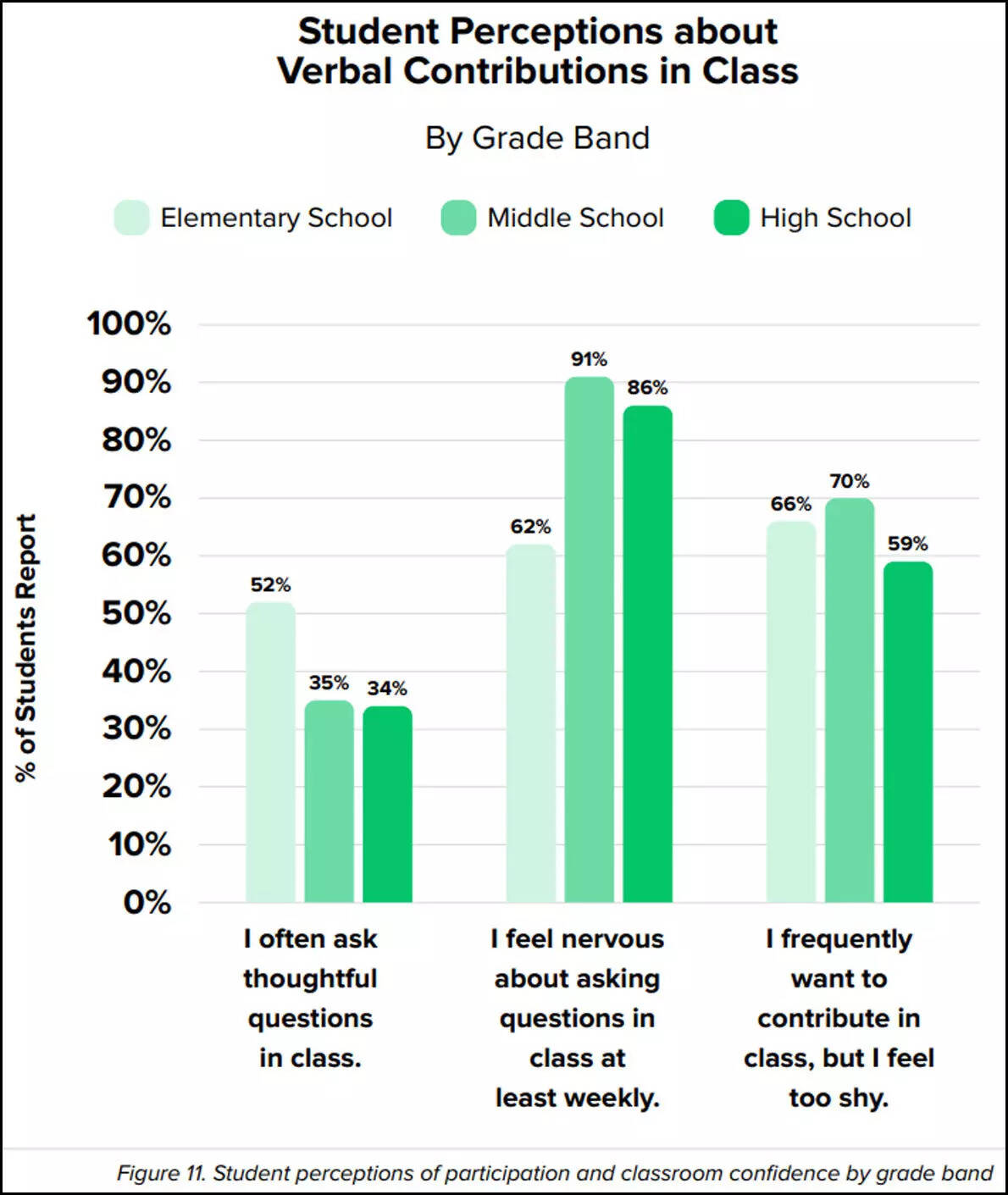American center college college students face the very best ranges of classroom anxiousness and disengagement throughout all academic levels, with 91% reporting they really feel nervous about asking questions in school at the very least weekly, in line with new analysis. This represents a 29-percentage level enhance from elementary college college students, highlighting a crucial developmental shift that happens throughout early adolescence.The findings reveal a stark disconnect between how college students expertise studying and the way educators understand their engagement ranges. While 59% of center college college students report feeling extremely engaged of their studying, solely 36% of their lecturers consider college students are genuinely engaged, making a 23-point notion hole that widens in comparison with elementary training.Center college marks crucial transition level for pupil participationThe analysis, based mostly on Training Insights 2025-2026: Fueling Studying By way of Engagement, reveals that center college represents a pivotal stage the place college students start shifting from energetic to passive types of disengagement. The examine, which captures views from 1,398 Ok-12 superintendents, principals, lecturers, dad and mom, and college students throughout america, was performed by Hanover Analysis on behalf of Discovery Training in Could 2025.Pupil nervousness about classroom participation peaks throughout center college years, with information exhibiting a dramatic enhance from elementary ranges. Solely 62% of center college college students report usually asking considerate questions in school, in comparison with 66% of elementary college students, regardless of lecturers ranking questioning as their prime indicator of pupil engagement.Academics wrestle to recognise quieter types of engagementCenter college educators report the very best frequency of scholars expressing unfavourable attitudes in the direction of college in comparison with different grade ranges. Academics observe this negativity greater than college students self-report, suggesting educators could also be decoding quiet or internalised types of engagement as disinterest.The info reveals important gaps between what lecturers worth as engagement indicators and what they really observe in school rooms. While 72% of lecturers fee asking considerate questions because the strongest signal of engagement, solely one-third report seeing this behaviour often, notably in center and highschool settings.Notion hole in pupil engagement and anxiousness by grade stage

Disengagement patterns shift from social to passive behavioursCenter college lecturers report distinctive challenges as pupil disengagement begins transitioning from overtly social behaviours to extra passive varieties. While elementary college students usually present disengagement via chatting with friends (76%) and performing out (68%), center college represents a pivotal stage the place each conventional disruptions and rising passive behaviours seem at related charges.Telephone utilization throughout class time will increase by 30 proportion factors in center college in comparison with elementary ranges, while incidents of scholars sleeping in school rise noticeably. This shift displays each developmental elements and elevated entry to non-public units that create non-public channels for disengagement.Academics in center faculties additionally report competing with social media for college students’ consideration greater than their elementary counterparts, with 76% citing this as a frequent problem. The analysis signifies that as college students mature, they usually masks disinterest via avoidance behaviours quite than open resistance, making disengagement more durable to detect and tackle.The findings counsel that center college college students could also be experiencing heightened social consciousness and self-consciousness typical of early adolescence, when younger folks turn out to be more and more involved about peer notion and social analysis, in the end inhibiting their willingness to take part verbally in classroom settings.

